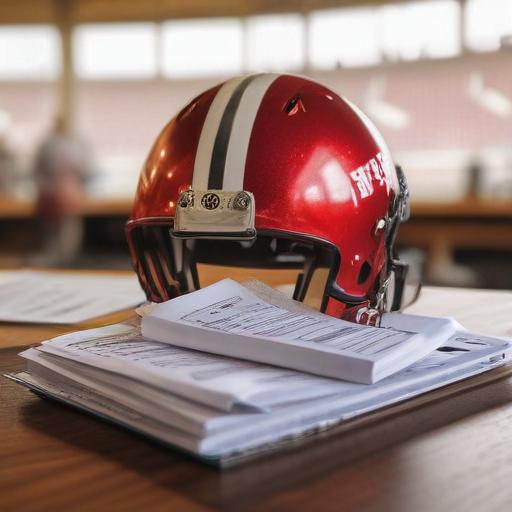The NFL Players Association (NFLPA) convened its board of player representatives on Friday following the unexpected resignation of executive director Lloyd Howell. The primary focus of the meeting was to appoint an interim executive director while the search for a permanent replacement is launched.
The early contenders for the role appear to be JC Tretter, the union’s chief strategy officer with significant backing, and Don Davis, the chief player officer. Tretter has been noted as the frontrunner, but his candidacy comes amidst scrutiny. The circumstances surrounding Howell’s resignation, specifically concerns over potential conflicts of interest linked to Howell’s consulting role with The Carlyle Group, have cast a shadow over the decision-making process.
There’s rising discontent among certain NFL players concerning Tretter’s position. Reports indicate that some players are contemplating legal action against the NFLPA and Tretter for alleged violations related to inclusion, labor rights, and union dues misuse. This discontent is exacerbated following the circulation of a critical text message about Tretter among players.
Additionally, Tretter’s connection to Howell could dog his candidacy, especially with federal investigations into Howell’s activities gaining traction. The NFLPA’s Constitution lacks specific procedures for appointing an executive director, which might allow the executive committee to appoint Tretter without wider player consultations.
Tretter’s past decisions and actions, including his approach to negotiations and public comments, are being closely examined. Some believe that appointing him as interim executive director could present complicated challenges given the recent controversies and ongoing investigations into Howell’s conduct.
One potential resolution for minimizing concerns around Tretter’s interim role could be requiring him to pledge not to pursue the permanent position or involve himself in the ongoing search. While Tretter’s leadership capabilities are under scrutiny, his close ties to Howell raise questions about whether he could effectively guide the NFLPA during critical negotiations, especially with collective bargaining discussions on the horizon.
As the NFLPA navigates this leadership transition, players and stakeholders alike will be watching closely to see how these developments unfold and the potential impact on their collective interests in the upcoming negotiations with the league. Despite the challenges, this moment presents an opportunity for the union to reassess its direction and priorities moving forward.
